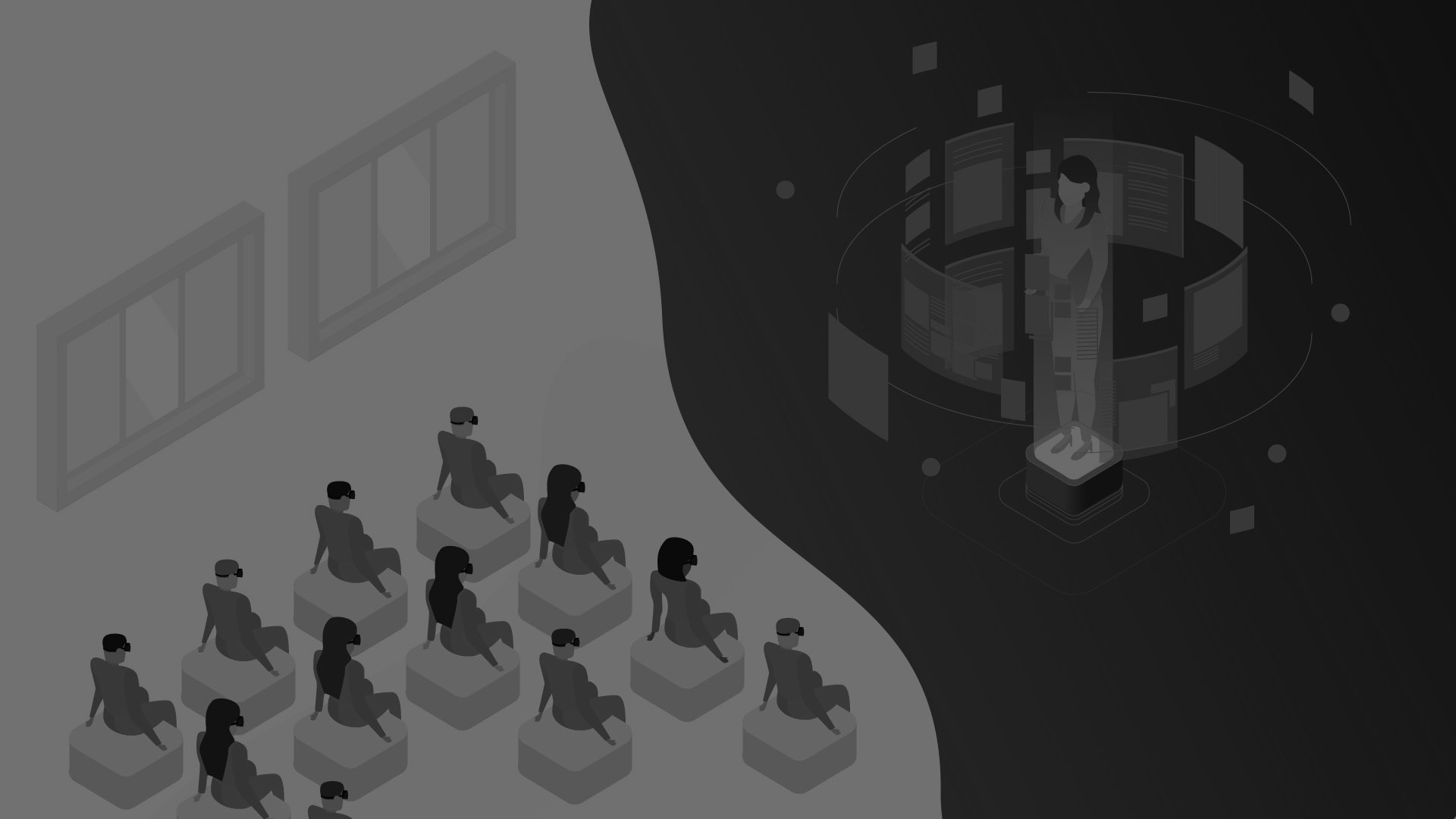
Article
Transforming Experiential Learning: Future-Proofing Your Education Strategy
Veronica Moore — February 2, 2023
Since inception, Level5 has worked with dozens of educational institutions and boards to develop insights reports that inform their strategic plans. With vast industry experience, Level5 has gained a deep understanding of the dynamic educational landscape. One notable finding is the growing importance of the role of technology in innovative pedagogical methods.
This article by Level5 Consultant Veronica Moore suggests that emerging technologies like the metaverse have tremendous opportunity to advance how education is designed, delivered, and consumed. The associated risks and implications need to be kept top of mind as school boards and other institutions refresh their strategic plans. Technology, in many forms, must be embraced to support the strategic transformation of education and to keep pace with the global adoption of new tech.
Metaverse: Education as an early opportunity
Over a year ago, Mark Zuckerberg announced that Facebook would be rebranding to Meta to reflect its futuristic transition in becoming a Metaverse company. The impetus was to bring people from around the world together to lead virtual lives in immersive digital environments.
Despite the lofty aspirations for, and muted receptions of the Metaverse within its first year, the education sector presents a unique and promising opportunity to be an early adopter of this virtual space.
We know all too well how the past three years have presented an urgent transition to more virtual and blended learning environments for students everywhere. With dwindling attention spans and maturation into an increasingly digital world, investing in exciting learning environments will be an important next step. Furthermore, it is no longer necessary for these experiences to be bound by a computer screen or the four walls of a classroom.
New Strides in Experiential Learning
The metaverse offers immersive learning opportunities for students across subjects and age groups. For example, the metaverse enables interactive virtual tours and events, digital learning, 3D classrooms, interdisciplinary education, and simulating real-life situations.
Numerous studies have shown that the immersive nature of virtual and extended reality leads to greater engagement and knowledge retention [1]. Learning in the metaverse stresses the importance of understanding rather than fact retention. It also proves to be a more effective teaching strategy for kinesthetic and visual learners.
The metaverse can provide a safe space for students to experiment, fail, learn, and engage in experiential learning that would be impossible or too risky in traditional educational settings.
Key Considerations for Institutions
Although playful and flashy, experiential learning experiences in the metaverse have the potential to transcend fun and games – they can be powerful learning tools. However, there are some noteworthy risks and implications that need to be considered as the world continues to quickly adopt new technologies like the metaverse.
Teachers: Acting as guides in immersive learning, teachers are crucial to metaverse learning experiences. For example, they can help a child navigate virtual spaces that might engender difficult feelings based on the child’s upbringing and experiences. The metaverse is not a replacement for teachers, and avatars are not a substitute for real teacher-child and child-child interaction.
Representation: Culturally diverse and inclusive learning spaces are critical to ensure that the values of diversity, inclusion, and equity are reflected in virtual learning spaces. The metaverse will enable exposure to a broader variety of cultural experiences than traditional classroom learning. However, the algorithms which drive and define metaverse learning experiences must be based on accurate historical content, and free from socio-economic, racial, and gender bias. We have seen the destructive power of misinformation in the age of social media, and it is crucial that metaverse-based learning spaces are built on accurate contextual information.
Accessibility: Metaverse-based learning spaces require access to computers and high-speed broadband internet, which may not exist in remote or marginalized communities. Equity of access to digital resources such as the metaverse may be a challenge in some areas.
So, What?
The role and impact of technology in the design, delivery, and internalization of learning experiences cannot be understated. Research by Level5 strongly suggests that metaverse-based learning experiences will be beneficial for students but should not become an end unto themselves.
Technology is just one enabler of a broader strategic plan amongst other important priorities for educational institutions and leaders. It must support and enable other strategic priorities, such as flexible learning models, whole-child learning strategies, and organizational values such as diversity, inclusion, and equity.
As stated in a recent Brookings Institute (2022) policy report: “When education lags the digital leaps, the technology rather than the educators defines what counts as education opportunity.” [2]
Advances in technologies such as the launch of the metaverse can help to bolster student learning and achievement — technology must be embraced to support the future of education.
[1] https://xd.adobe.com/ideas/principles/emerging-technology/virtual-reality-will-change-learn-teach/#:~:text=Virtual%20reality%20can%20be%20used,but%20also%20interact%20with%20it
[2] https://www.brookings.edu/research/a-whole-new-world-education-meets-the-metaverse/
If you are interested in learning more, reach out to Veronica Moore, Matt Kelly, or Jordan Shapiro.


